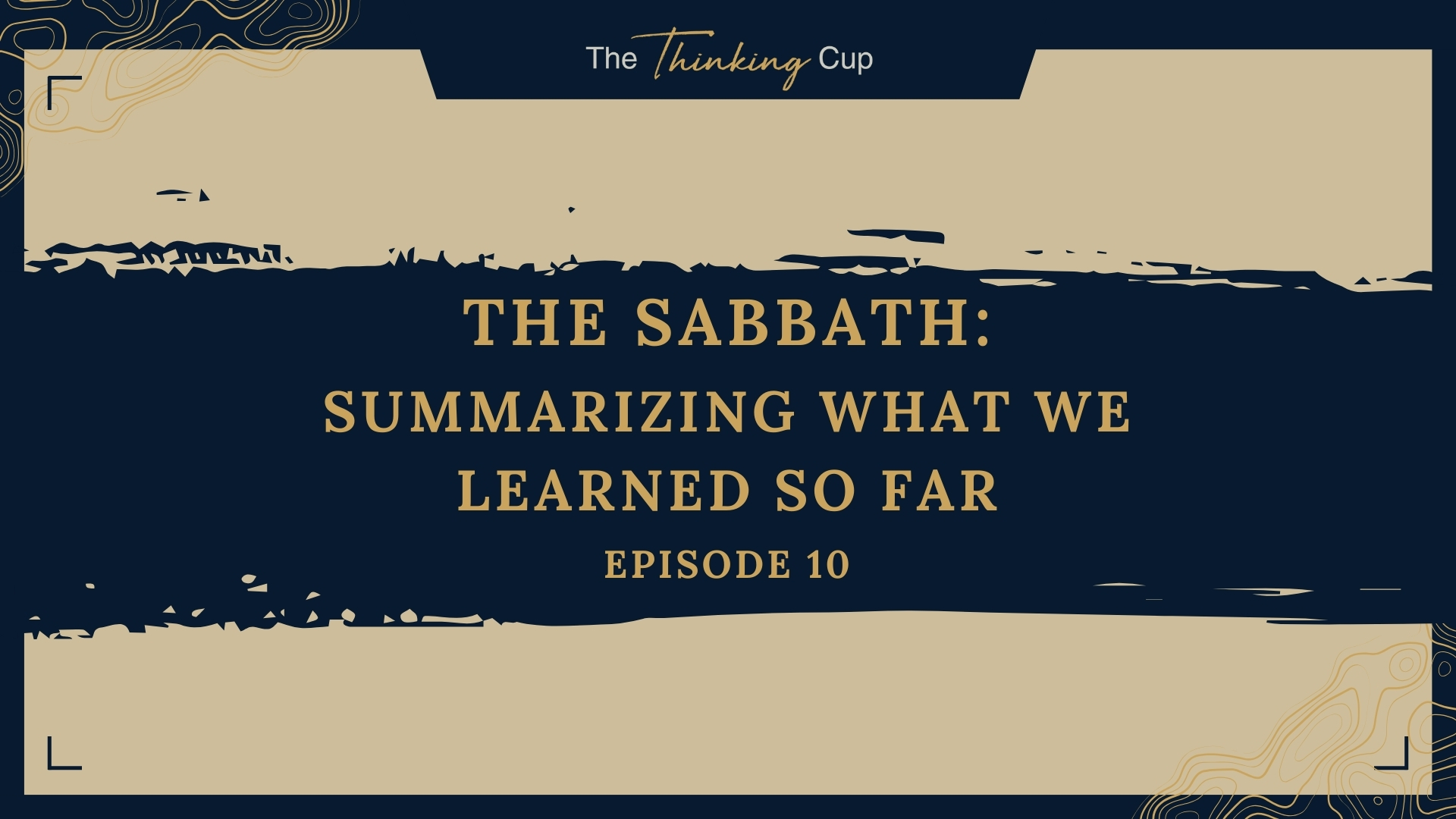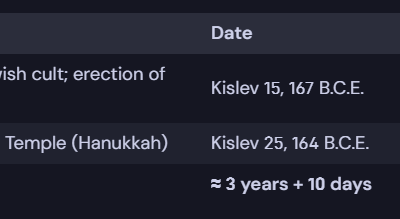Summary of Episodes 1-8
There is no scriptural basis for mandatory Sabbath observance, whether from the claim that it is a creation ordinance or from an appeal to the Law of Moses. The attempt to establish Sabbath-keeping as a binding obligation fails both exegetically and theologically.
D.R. de Lacey, a scholar from Ridley Hall, Cambridge, provides a comprehensive summary of the law’s function and applicability today. He explains that,
“The law presents mankind with the ethical [1] standards of the holy God. As such, its goodness is unquestionable, but its effect is simply to demonstrate the existence of our sin, to condemn us as a result, and also to provoke our sin. Because of the weakness of the flesh, it can have no other effect on us when we read its righteous demands. Only death with Christ will remove us from the condemnation that it would otherwise constantly pronounce on anyone who endeavored to live by its standards.” [2]
Furthermore, de Lacey affirms that the entire covenantal system established at Sinai has been replaced by the New Covenant in Christ.
“Any attempt, even by Christians, to use the law as a basis for a standing before God led inevitably to the sin of “boasting” that is, faith in self rather than faith in God. [3]The only Christian way to fulfill one’s obligation to God is by fulfilling the law of love (the law of subordinating one’s own self to the other), by walking in the Spirit. These two factors, love and the Spirit, Paul sees as keeping Christian obedience from degenerating into formal legalism.” [4]
Christian obedience is found not in adherence to the Mosaic Law but in following the law of love and walking in the Spirit, which safeguards against legalism.
David A. Dorsey, a professor at the Evangelical School of Theology, also addresses the role of the Law of Moses in the life of the Christian. He highlights the inherent inconsistency in the way some believers attempt to determine which parts of the law still apply. Many uphold the Ten Commandments as eternally binding but then modify the fourth commandment regarding the Sabbath. Others insist that certain moral laws—such as the prohibition against homosexuality in Leviticus 20:13—are still applicable while simultaneously rejecting other laws from the same passage, such as dietary restrictions. Likewise, some use Deuteronomy 22:5 to argue against women wearing certain types of clothing but do not apply other regulations from the same chapter, such as the command to build parapets on roofs or the prohibition against planting different seeds together. This inconsistent approach demonstrates the difficulty of arbitrarily selecting which aspects of the Mosaic Law remain in effect. [5]
Dorsey ultimately concludes that none of the 613 commandments of the Mosaic Covenant are legally binding on New Testament believers, including those traditionally categorized as moral laws. However, he asserts that all 613 laws remain significant in a revelatory and pedagogical sense. The New Testament affirms that Christ’s covenant is distinct from the Sinaitic covenant, calling it a “better covenant” (Heb. 7:22) and a “superior covenant” (Heb. 8:6). The old covenant has been rendered “obsolete” (Heb. 8:13), and the vast majority of its regulations are simply inapplicable to Christians today. The specificity of the Mosaic Law to Israel is evident in its cultural and geographical requirements, making it unsuitable as the governing rule for the Church. [6]
In response to Seventh-day Adventist Covenant Theology’s claim that the moral law of the Mosaic Law is still binding, Dorsey presents three reasons why this view is inconsistent with New Testament teaching:
-
- The Tripartite Division Is Unbiblical – The division of the law into moral, ceremonial, and civil categories is absent from both Scripture and early rabbinic literature. The New Testament consistently treats the Mosaic Law as a single, unified system. Paul explicitly states that anyone who seeks to keep part of the law is obligated to keep all of it (Gal. 5:3), and James declares that breaking one commandment makes a person guilty of violating the entire law (Jas. 2:10). The New Testament nowhere suggests that only portions of the law remain in effect while others are abolished. [7]
- All Laws Contain Moral Elements – The distinction between moral and ceremonial laws is arbitrary because all laws reflect moral principles in some form. For instance, the laws regarding the Sabbath, agricultural practices, and clothing regulations all contain ethical considerations. Conversely, even laws classified as moral have cultural and time-bound elements. [8]
- The Attempt to Preserve Certain Laws Is Unnecessary – The desire to retain portions of the Mosaic Law for Christian living overlooks the fact that all moral principles are reaffirmed under the Law of Christ. The New Testament provides clear ethical instructions without requiring adherence to the Mosaic Covenant. [9]
Dorsey proposes a solution that acknowledges that while the Mosaic Law is no longer legally binding, all 613 commandments still hold significant value for instruction, theological insight, and personal growth. This is affirmed by Paul’s statement in 2 Timothy 3:16–17, which declares that:
“All Scripture is breathed out by God and profitable for teaching, for reproof, for correction, and for training in righteousness, that the man of God may be complete, equipped for every good work.” (2 Timothy 3:16–17, ESV)
The Law of Moses, though not a rule of life for believers, provides a wealth of wisdom and insight into God’s character and ways.
To interpret the Law of Moses correctly, Dorsey outlines a more God-centered Biblical interpretive approach for applying any Old Testament law, regardless of whether it is classified as ceremonial, judicial, or moral:
-
- Recognize that the Law Was Given to Israel – The Mosaic Law was part of God’s covenant with ancient Israel, not the Church. Christians should read it as an observer rather than as one under its authority.
- Determine the Original Meaning and Purpose – Understanding why God gave a particular command helps in drawing theological and ethical insights from it.
- Identify the Theological Significance – The Mosaic Law reveals important truths about God’s nature and His expectations for His people.
- Apply Its Principles to New Testament Living – While the Mosaic commands are not binding, the principles behind them can inform Christian ethics and spiritual growth. [10]
In conclusion, there is no scriptural basis for maintaining the Sabbath as a binding commandment, nor is there a valid reason to selectively retain portions of the Mosaic Law while discarding others. The entire Law of Moses has been set aside in favor of the New Covenant, and believers are now governed by the Law of Christ. Attempts to categorize and preserve certain Mosaic laws fail to recognize the unified nature of the law and the New Testament’s clear teaching that it has been rendered inoperative. Instead of living under a modified version of the Mosaic system, believers are called to walk in the Spirit and follow the law of love, which fulfills all of God’s righteous requirements (Rom. 13:8–10; Gal. 5:14).
“For the whole law is fulfilled in one word: “You shall love your neighbor as yourself.”” (Galatians 5:14, ESV)
In Christian Love,

[1] To say this is not to revert to that division of the law into ethical and cultic parts that was rejected earlier, but simply to recall that it is there that the “weakness of the flesh” is manifested.
[2] D. R. De Lacey, “The Sabbath/Sunday Question and the Law in the Pauline Corpus,” in From Sabbath to Lord’s Day: A Biblical, Historical, and Theological Investigation, ed. D. A. Carson (Eugene, OR: Wipf & Stock, 1999), 175.
[3] As R. Bultmann saw (Theology of the New Testament [London: SCM, 1952], 1.262–63), though his terminology is not always clear and he did not develop this understanding with respect to a Christian’s attitude to the law. More recently, both Longenecker (Paul, p. 78, note 63) and Sanders (Paul, pp. 75, 236) have attempted to clarify the terminological problem, Longenecker using the term “reacting nomism” and Sanders employing “covenantal nomism” to express the idea that law-keeping was not seen as establishing a relationship with God, but deriving from such a relationship. Sanders acknowledges that for Paul, even this idea of covenantal nomism is probably inadequate: Paul, pp. 513–14.
[4] D. R. De Lacey, “The Sabbath/Sunday Question and the Law in the Pauline Corpus,” in From Sabbath to Lord’s Day: A Biblical, Historical, and Theological Investigation, ed. D. A. Carson (Eugene, OR: Wipf & Stock, 1999), 175.
[5] David A. Dorsey, “The Law of Moses and the Christian: A Compromise,” Journal of the Evangelical Theological Society 34, no. 3 (1991): 319-322.
[6] David A. Dorsey, “The Law of Moses and the Christian: A Compromise,” Journal of the Evangelical Theological Society 34, no. 3 (1991): 324-325.
[7] Ibid, 329 -331.
[8] Ibid, 331-332.
[9] Ibid, 333.
[10] David A. Dorsey, “The Law of Moses and the Christian: A Compromise,” Journal of the Evangelical Theological Society 34, no. 3 (1991): 332-333.



0 Comments